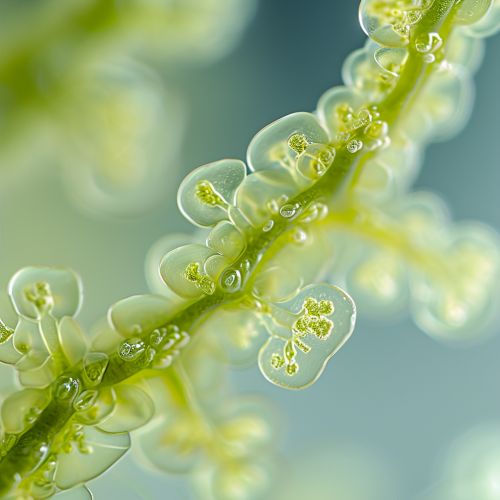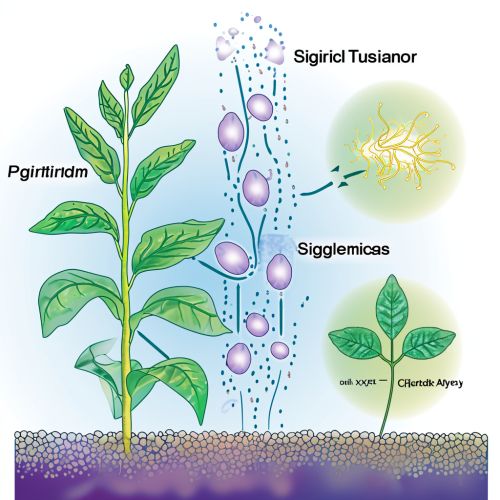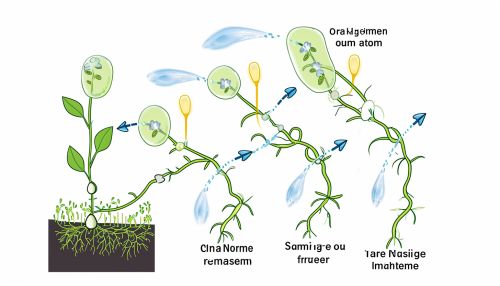Plant Signaling
Introduction
Plant signaling is a crucial aspect of plant biology that involves a series of complex communication processes. These processes allow plants to perceive and respond to environmental cues, thereby ensuring their survival and reproduction. The study of plant signaling has significantly advanced our understanding of plant biology and has implications for agriculture and environmental management.
Types of Plant Signaling
Plant signaling can be broadly categorized into three types: autocrine, paracrine, and endocrine signaling.
Autocrine Signaling
Autocrine signaling involves the production and reception of signals by the same cell or tissue. In plants, this type of signaling often regulates cell growth and differentiation.


Paracrine Signaling
Paracrine signaling involves the production of signals by one cell or tissue and the reception of these signals by neighboring cells or tissues. This type of signaling is crucial for plant development and responses to environmental stimuli.
Endocrine Signaling
Endocrine signaling involves the production of signals by one cell or tissue and the reception of these signals by distant cells or tissues. In plants, this type of signaling often regulates growth and development on a whole-plant level.
Plant Hormones
Plant hormones, also known as phytohormones, play a central role in plant signaling. These small organic molecules are produced in response to environmental cues and regulate a wide range of physiological processes.
Auxins
Auxin is a class of plant hormones that regulate cell elongation, apical dominance, and other growth processes. It is also involved in responses to light and gravity.
Gibberellins
Gibberellin is another class of plant hormones that promote stem elongation, seed germination, and flowering.
Cytokinins
Cytokinin is a class of plant hormones that promote cell division and differentiation. It is also involved in the regulation of nutrient uptake and responses to light.
Plant Signal Transduction
Plant signal transduction is the process by which a signal is relayed from the cell surface to the cell interior, leading to a specific cellular response. This process involves a series of molecular interactions known as a signal transduction pathway.


Plant Signaling and Stress Responses
Plants are constantly exposed to a variety of biotic and abiotic stresses. Plant signaling plays a crucial role in the detection of these stresses and the activation of appropriate responses.
Biotic Stress Responses
Biotic stresses are caused by living organisms such as pathogens and pests. Plant signaling pathways involved in biotic stress responses often lead to the activation of defense mechanisms such as the production of antimicrobial compounds.
Abiotic Stress Responses
Abiotic stresses are caused by non-living factors such as drought, salinity, and extreme temperatures. Plant signaling pathways involved in abiotic stress responses often lead to the activation of mechanisms that enhance plant tolerance to these stresses.
Conclusion
Plant signaling is a complex and fascinating aspect of plant biology. It plays a crucial role in plant growth, development, and responses to environmental cues. The study of plant signaling not only advances our understanding of plant biology but also has important implications for agriculture and environmental management.
